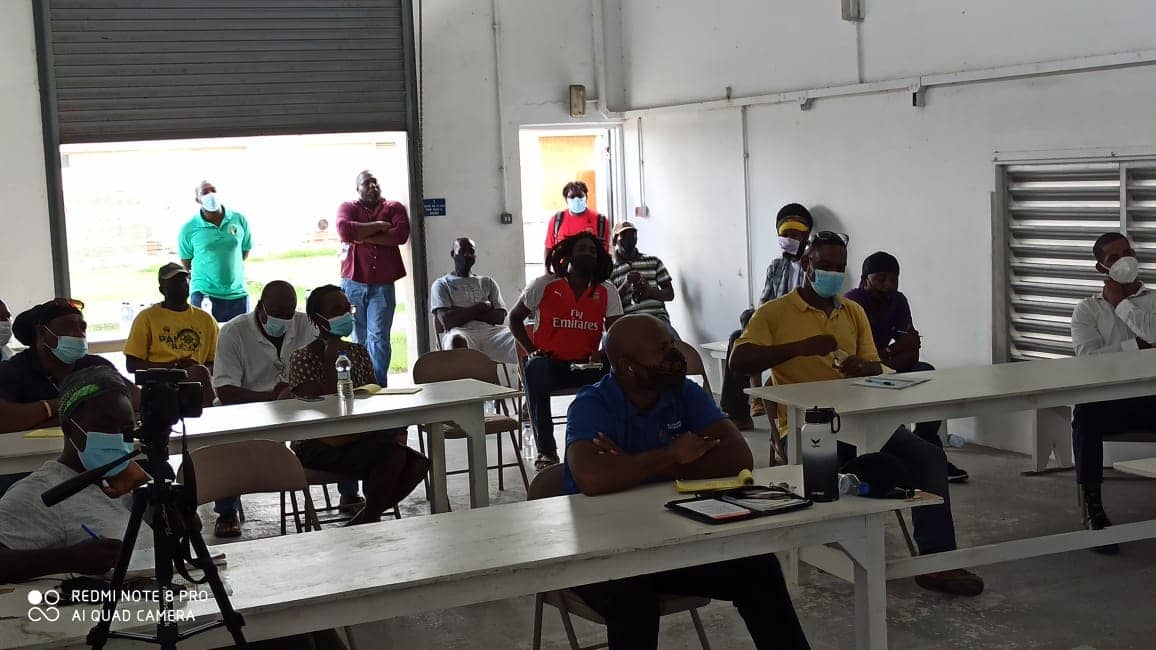
In 2008 the European Partnership Agreement (EPA) was signed by the Government of Antigua and Barbuda, obligations within the EPA included the establishment of a system of protection for intellectual property rights. Consequently, two pilot commodities were identified for potential GI status – The Antigua Black Pineapple and Barbuda Logwood Honey.
Following a request from the Ministry of Agriculture in Antigua & Barbuda, the Food and Agriculture Organization of the United Nations (FAO) began the process of supporting a participatory preparation of the technical specifications of the commodities as well capacity-building activities for the value chain and its stakeholders.
The current work acts as a continuation of these initiatives of previous support given to the GI establishment process. The establishment of a geographic indication creates the potential for increased income through premium prices and better redistribution of added benefit along the value chain and in the area of production, economies of scale, improved production practices and increased market access through value chain development.
In an effort to achieve this potential, FAO and the Inter-American Institute for Cooperation on Agriculture (IICA) in a collaborative effort are seeking to build the capacity of Micro, Small and Medium Enterprises (MSMEs) towards improving the food security, livelihoods, and resilience of the impacts of climate change, which will improve the production capacity of Antigua Black Pineapple.
The first capacity building activity of the project entailed the training of producers in business management skills to ensure that they apply good business principles in the management of their specific supply points along the value chains. This was executed on September 14th by a team of local consultants, including support from IICA and with virtual participation of the FAO Sub-regional Office in Barbados.
The activities also included the value chain mapping of the Antigua Black Pineapple and facilitated knowledge sharing among Antigua Black Pineapple Producers. The mapping exercise identified the various elements of the value chain such as input supplies, production and its practices, marketing, and distribution, all of which have an impact on the end product.
The activities also featured primary data collection through interviews with local pineapple producers to understand the local production of the commodity and existing challenges and potentials.
Over 24 persons attended the session which included 20 of the 35 Antigua Black Pineapple producers, as well as 4 technical staff members from supporting and stakeholder institutions such as the Ministry of Agriculture, Fisheries and Antigua Affairs and the Caribbean Agricultural Research and Development Institute.

The participants benefitted from an interactive and informative session led by Julie-Ann Laudat, IICA Consultant who facilitated the discussion about the Antiguan Black Pineapple Value Chain, while participants shared on their experience as producers. One of the participants, Dalma Browne lamented some of her challenges and states, “Accessing clean planting material was difficult”. Meanwhile, another participant, Carl Hastings, expressed, “We have to come together to make this work”, as he spoke on the importance of collaboration among producers in the form of a producer’s cooperative to alleviate the challenges faced.
Vermaran Extavour, International Expert – Value Chains and Project Coordinator at the FAO in thanking the participants for sharing the knowledge and information with the team, stated, “The information shared here today at this important session will be used not only for the development of short and medium term interventions for the benefit of the commodity but also to inform the long term development of the Antigua Black Pineapple on its road to gaining recognition as a geographical indication”.
Achieving recognition for the black pineapple is expected to enhance recognition and reputation while increasing potential for market access to external and high value markets. If leveraged properly geographical indication can increase the earning potential of Antigua Black Pineapple and any future secondary products.
Advertise with the mоѕt vіѕіtеd nеwѕ ѕіtе іn Antigua!
We offer fully customizable and flexible digital marketing packages.
Contact us at [email protected]
















Maybe they will figure out how to make it sweet for real cause the last several I bought was not.
That must be the Dominican one you ate
In case you missed it: Jamaican pineapple farmers gain access to Barbados- Jamaica Observer, 11/05/2021.
Comments are closed.